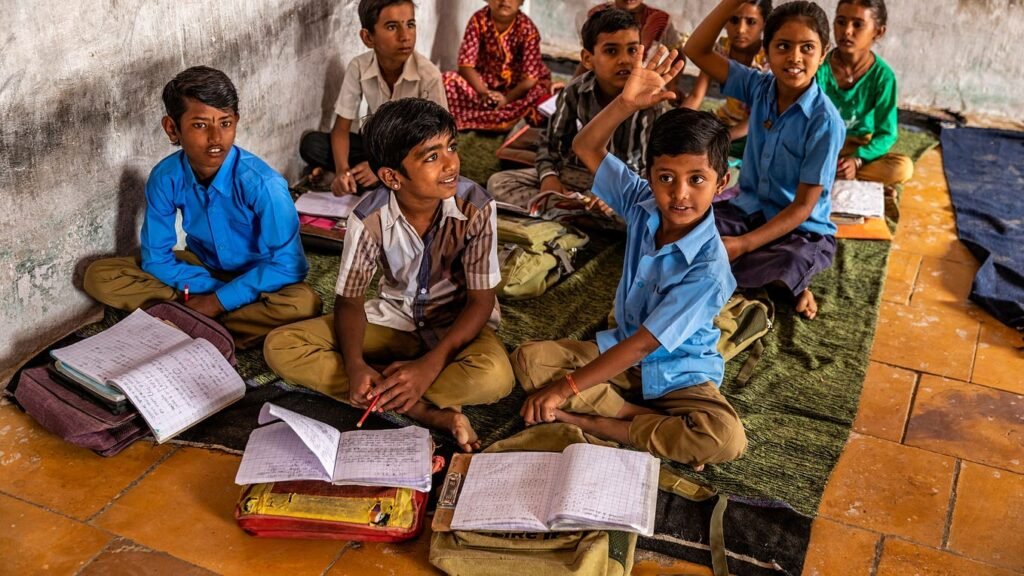Helping Children Cultivate Positivity and Confidence
In today’s fast-paced and challenging world, children face a variety of influences that can impact their emotional well-being. Whether it’s navigating relationships, dealing with the pressures of technology and social media, overcoming bullying, or meeting academic expectations, these factors can weigh heavily on their confidence and self-image.
What Is Self-Talk?
Self-talk refers to the internal monologue that plays in a person’s mind—a constant companion that shapes their thoughts and perceptions. For children, this inner voice can either build them up or pull them down, depending on whether it’s positive or negative.
- Positive self-talk is encouraging and uplifting. It can help children persevere through tough times with thoughts like, “I’m giving it my best effort.”
- Negative self-talk, on the other hand, can erode confidence, with thoughts such as, “I can’t do anything right.”
The way children talk to themselves significantly impacts their self-esteem and resilience.
Embracing Unique Personalities
Every child is unique, with a distinct personality—whether they are introverted, extroverted, ambiverted, shy, or overly confident. What matters is how they perceive themselves and the way they present themselves to the world. Often, how others view a child is a reflection of how the child views and carries themselves.
As Dr. Brown aptly said, “Children who set impossibly high standards for themselves are more likely to engage in negative self-talk. These perfectionists can be so hard on themselves that they drain their confidence while trying to achieve their goals.”
Focus on Your Own Timeline
It’s important for children to become their own cheerleaders rather than seeking validation from others. While the world moves at a rapid pace, they need to understand that everyone has their own timeline for growth and success. Instead of comparing themselves to others, children should focus on:
- Developing their unique skills.
- Appreciating the strengths of their peers without undervaluing their own abilities.
- Embracing failures as opportunities to learn and grow.
Remind them that no one is out there judging their every move. The key is to build confidence and keep moving forward.
The Power of Believing in Yourself
Self-doubt can be one of the biggest hurdles for children. They need to learn to:
- Accept compliments and believe in their achievements.
- Understand that striving to improve doesn’t mean their current efforts aren’t good enough.
- Recognize that progress comes with time, and where they are now is a valuable part of their journey.
Navigating Social Media Positively
Social media can be a double-edged sword. On one hand, it offers a platform for self-expression and sharing joyful moments. On the other hand, it can create feelings of inadequacy as children compare themselves to the curated lives of others.
To use social media positively, children should:
- Focus on sharing their talents, such as artwork or achievements, and take constructive criticism as an opportunity to grow.
- Shift their perspective to see it as a space to share happiness rather than compete.
- Practice gratitude and mindfulness when scrolling through others’ posts.
Finding Joy in What You Love
Encouraging children to discover and pursue their passions can significantly boost their self-esteem. Whether it’s painting, playing sports, singing, reading, or spending time with family, these activities bring joy and allow them to embrace their individuality.
It’s important that children:
- Pursue these activities without fear of judgment or comparison.
- Play to their strengths while working on their weaknesses.
- Remember that excelling in something they enjoy, like academics, should be celebrated, not constrained by labels such as “topper.”
Becoming Positive Thinkers
Helping children monitor their self-talk and challenge negative thoughts is key to building resilience. Encourage them to:
- Keep a list of their positive traits and achievements.
- Reframe challenges with questions like, “What can I do to improve this?” instead of thinking, “I don’t know how to do this.”
- Practice gratitude and focus on small wins to build a positive outlook.
Final Thoughts
Every child has the potential to grow into a confident, positive individual. By fostering self-awareness, embracing their unique journey, and encouraging them to focus on what truly makes them happy, we can help them build the resilience they need to thrive in today’s world.




